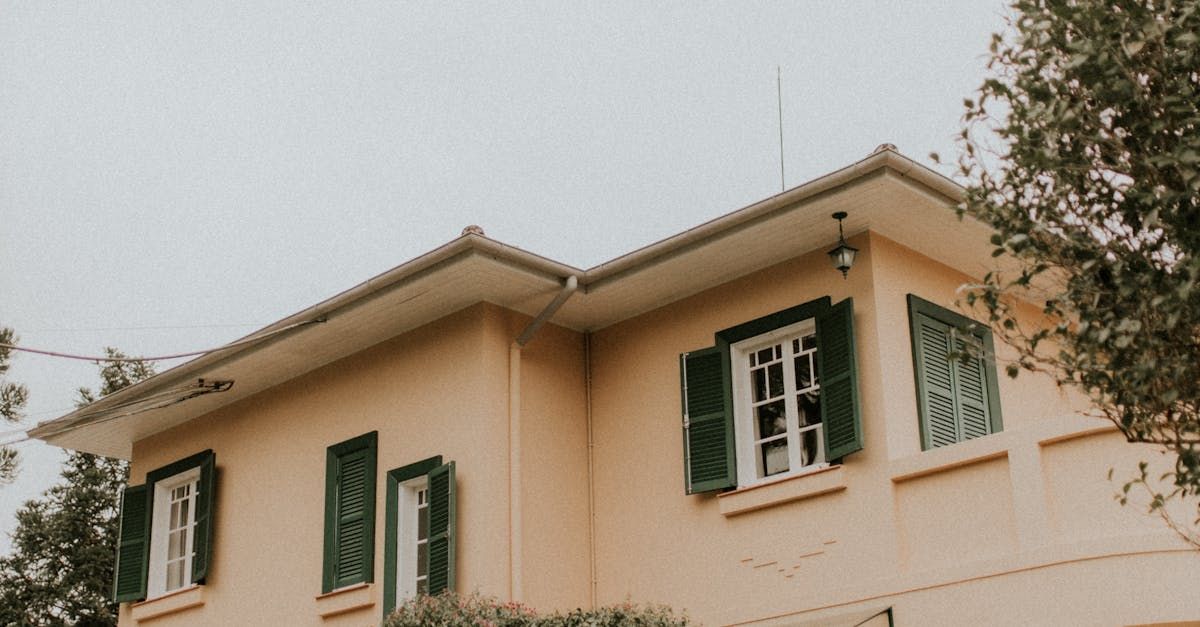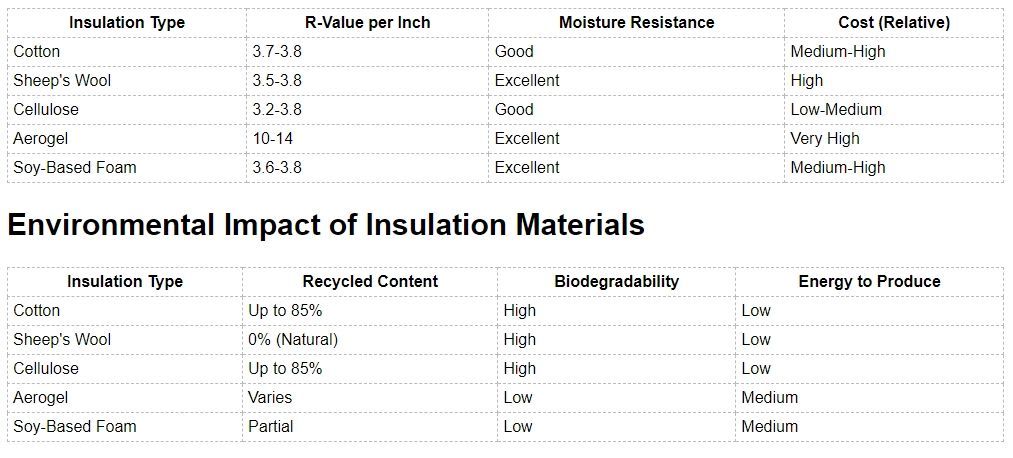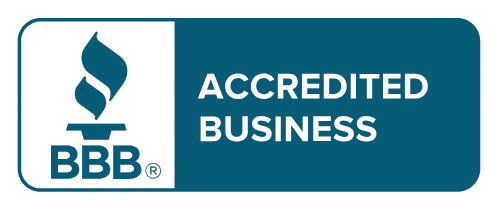Eco-Friendly Insulation Options: Charleston's Green Guide
Key Takeaways:
- Natural materials like cotton, wool, and cellulose offer excellent insulation properties
- Recycled options such as denim and newspaper reduce waste while providing effective insulation
- Innovative solutions like aerogel and soy-based foam combine sustainability with high-performance
- Local climate considerations in Charleston influence insulation choices
- Energy efficiency and cost savings are major benefits of eco-friendly insulation
- Installation methods vary depending on the type of insulation chosen
Eco-friendly insulation options are becoming increasingly popular among Charleston homeowners looking to improve their home's energy efficiency while reducing their environmental impact. These sustainable materials offer excellent thermal performance, help lower energy bills, and contribute to a healthier living environment. Let's explore some of the best eco-friendly insulation choices available for homes in the Lowcountry.
Natural Fiber Insulation: Harnessing Nature's Insulators
Natural fiber insulations are derived from renewable resources and offer excellent thermal and acoustic properties. These materials are often biodegradable and contain minimal synthetic additives.
Cotton Insulation: From Blue Jeans to Building Envelopes
Cotton insulation, often made from recycled denim, is a popular eco-friendly option. It's treated with borate for fire and pest resistance, making it a safe choice for Charleston homes.
Cotton insulation benefits:
- Good sound absorption
- Easy installation
- No harmful substances
However, cotton can be more expensive than traditional fiberglass insulation and may require special ordering in the Charleston area.
Sheep's Wool: Nature's Temperature Regulator
Sheep's wool insulation is a natural, renewable resource that offers outstanding insulation properties. It can absorb and release moisture without losing its insulating ability, which is particularly beneficial in Charleston's humid climate.
Advantages of wool insulation:
- Fire-resistant
- Regulates humidity
- Durable
The main drawback is its higher cost compared to synthetic options, but many homeowners find the benefits outweigh the initial investment.
Recycled Insulation: Giving Materials a Second Life
Recycled insulation materials help divert waste from landfills while providing effective thermal protection for homes.
Cellulose: Paper Products Reimagined
Cellulose insulation is made from recycled paper products, primarily newspaper. It's treated with borate compounds to resist fire, mold, and pests. This option is well-suited for Charleston's climate due to its moisture-managing properties.
Benefits of cellulose insulation:
- High recycled content
- Good for filling gaps and crevices
- Cost-effective eco-friendly option
One potential downside is that cellulose can settle over time, which may reduce its effectiveness if not properly installed.
Recycled Plastic: From Bottles to Batts
Insulation made from recycled plastic bottles is another innovative option. These polyester fibers are formed into batts or loose-fill insulation, offering similar performance to fiberglass without health concerns.
Advantages of recycled plastic insulation:
- Safe, chemical-free
- Mold and mildew-resistant
- Easy installation
While not as widely available as some other options, recycled plastic insulation is gaining popularity in eco-conscious communities like Charleston.
Innovative Eco-Friendly Insulation Technologies
Advancements in material science have led to the development of new insulation options that combine high performance with environmental sustainability.
Aerogel: Lightweight Powerhouse
Aerogel insulation, derived from silica gel, is an ultra-lightweight material with exceptional insulating properties. While not entirely natural, its energy-saving potential makes it an eco-friendly choice for Charleston homes with limited space for insulation.
Aerogel benefits:
- Best insulation value
- Ideal for thin-walled older homes
- Moisture and mold-resistant
The main drawback of aerogel is its high cost, which can be prohibitive for some homeowners.
Soy-Based Spray Foam: Plant-Powered Protection
Soy-based spray foam insulation offers an eco-friendly alternative to traditional petroleum-based foams. It expands to fill gaps and cracks, providing excellent air sealing in addition to insulation.
Advantages of soy-based foam:
- Eco-friendly
- Low emissions
- Good insulation
While more environmentally friendly than traditional spray foams, soy-based options still contain some synthetic materials and require professional installation.

Choosing the Right Eco-Friendly Insulation for Your Charleston Home
Selecting the best eco-friendly insulation for your home depends on various factors, including your budget, the area you need to insulate, and your specific environmental goals.
Climate Considerations in Charleston
Charleston's hot, humid summers and mild winters require insulation that can manage moisture while providing year-round thermal comfort. Materials like cellulose and wool excel in these conditions.
Installation Methods and Accessibility
Some eco-friendly insulations, like cotton batts, are DIY-friendly. Others, such as spray foam, require professional installation. Consider the accessibility of the areas you need to insulate when making your choice.
Long-Term Cost Savings
While many eco-friendly insulation options have higher upfront costs, they can lead to significant energy savings over time. Calculate the potential long-term benefits when budgeting for your insulation project.
Energy Efficiency and Home Comfort
Proper insulation is key to maintaining a comfortable home temperature and reducing energy consumption. Eco-friendly options can be just as effective as traditional materials in this regard.
Reducing Carbon Footprint
By choosing sustainable insulation, Charleston homeowners can significantly reduce their home's carbon footprint. This is particularly important in coastal areas like Charleston, which are vulnerable to climate change impacts.
Improving Indoor Air Quality
Many eco-friendly insulation materials are free from harmful chemicals, contributing to better indoor air quality. This is especially beneficial for families with allergies or respiratory issues.
Local Incentives and Rebates
Charleston and South Carolina offer various incentives for energy-efficient home improvements, including insulation upgrades. Check with local authorities and utility companies for current programs that could help offset the cost of eco-friendly insulation.
Insulation Performance Comparison

DIY vs. Professional Installation
When considering eco-friendly insulation options, it's important to weigh the pros and cons of DIY installation versus hiring a professional. Here are some factors to consider:
- Complexity of the project
- Your personal skill level and available time
- The type of insulation material chosen
- Access to necessary tools and equipment
- Potential for moisture or air barrier issues
- Warranty considerations
For many eco-friendly insulation options, professional installation ensures optimal performance and can be more cost-effective in the long run.
Maintaining Eco-Friendly Insulation
Once installed, eco-friendly insulation requires minimal maintenance. However, periodic checks are recommended to ensure continued performance:
- Inspect for any signs of moisture or pest intrusion
- Check for settling in loose-fill insulations
- Ensure ventilation systems are working properly
- Address any air leaks around windows, doors, and other openings
Regular maintenance will help your eco-friendly insulation last longer and perform better, maximizing your investment in sustainable home improvement.
Combining Insulation Types for Optimal Performance
In some cases, using a combination of eco-friendly insulation types can provide the best results. For example:
- Using cellulose in attics and wool in walls
- Combining aerogel panels with natural fiber insulation in tight spaces
- Using soy-based foam for air sealing and cotton batts for cavity insulation
A layered approach can address specific needs in different parts of your Charleston home while maintaining an overall eco-friendly insulation strategy.
The Future of Eco-Friendly Insulation
As technology advances, we can expect to see even more innovative and sustainable insulation options emerge. Current research is focusing on:
- Bio-based materials with enhanced fire resistance
- Advanced recycling techniques for insulation materials
- Nanotechnology applications for ultra-efficient insulation
- Smart insulation systems that adapt to changing conditions
Staying informed about these developments can help Charleston homeowners make future-proof choices for their insulation needs.
Eco-Friendly Insulation and Home Value
Investing in eco-friendly insulation can increase your home's value, especially in environmentally conscious markets like Charleston. Potential benefits include:
- Improved energy efficiency ratings
- Lower utility costs for future owners
- Appeal to eco-minded buyers
- Potential for green building certifications
When planning insulation upgrades, consider how they might impact your home's marketability and value in the long term.
Addressing Common Concerns About Eco-Friendly Insulation
Many homeowners have questions about switching to eco-friendly insulation options. Here are some common concerns and their solutions:
Cost Concerns
While initial costs can be higher, long-term energy savings often offset the investment. Many eco-friendly options also have longer lifespans than traditional insulation.
Performance Worries
Eco-friendly insulations have come a long way and now offer performance comparable to or better than conventional options. Proper installation is key to achieving optimal results.
Availability Issues
As demand grows, eco-friendly insulation materials are becoming more widely available. Many local suppliers in Charleston now stock these options or can order them upon request.
Health and Safety Questions
Most eco-friendly insulations are free from harmful chemicals and are safe for installers and occupants. Always check product specifications and choose materials appropriate for your specific needs.
Embracing Sustainable Comfort in Charleston Homes
Eco-friendly insulation options offer Charleston homeowners a way to improve their home's energy efficiency while reducing their environmental impact. From natural fibers like cotton and wool to innovative materials like aerogel, there are sustainable solutions to suit every home and budget.
By considering factors such as climate, installation methods, and long-term cost savings, you can choose the best eco-friendly insulation for your Charleston home. As we move towards a more sustainable future, these green insulation options not only provide comfort and energy savings but also contribute to a healthier planet. For more information, you can visit our website or contact us.






